From The Birth of a Nation to Forrest Gump, from the bayou to the Appalachians, American filmmakers have been fascinated by the South since the invention of the medium. Deeply complex and often mysterious, the character of the South makes for compelling stories. Ben Beard’s The South Never Plays Itself examines those stories through the lenses of criticism and historical perspective. Beard discussed his book in greater detail during a recent Author Talk with Atlanta History Center.
Delve into Hollywood’s portrayal of the South and its cultural impact with this list—composed by Beard—of highly impactful films that worked to critique, contextualize, or convolute the South’s complicated history.
Each movie offers the viewer a new perspective on how nuanced interpretations of Southern history and culture can be.
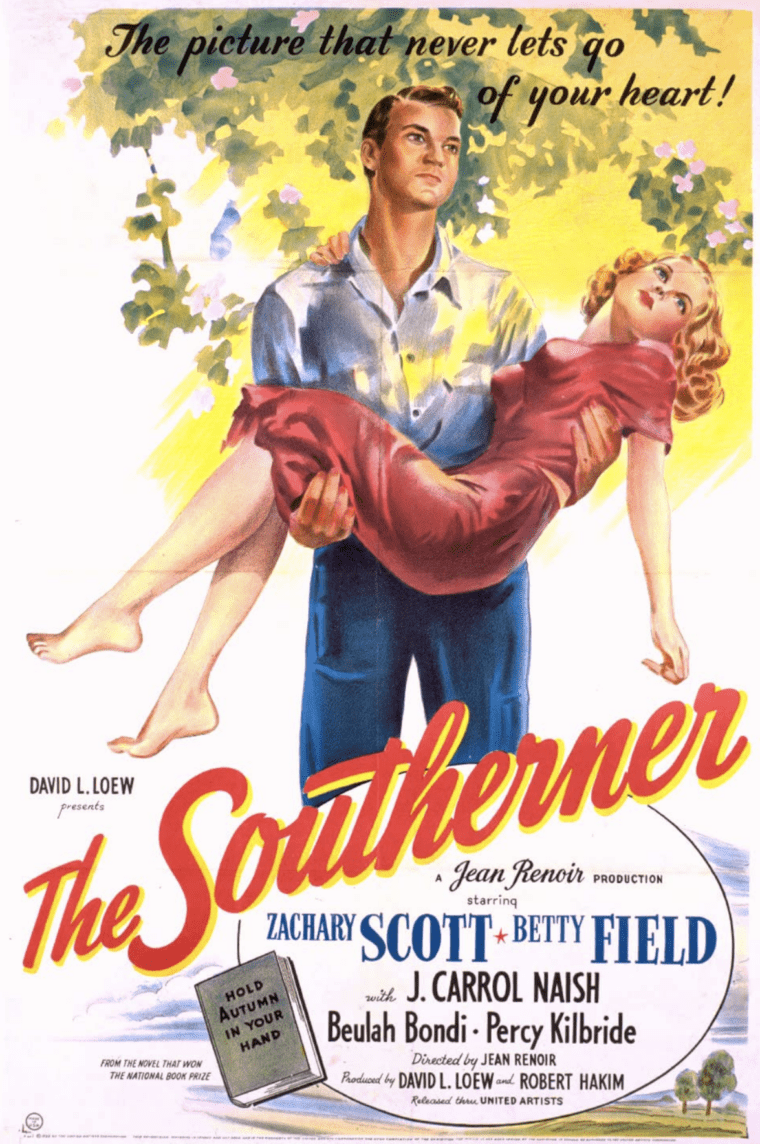
Courtesy of IMDB.com
The Southerner
One of the best films of the 1940s, by exiled French master Jean Renoir. A hard-scrabble family tries to survive owning their own land while navigating misery, misfortune, and natural disasters. Beautiful, touching, but thrilling and funny, too. Screenplay by Renoir, with contributions from Nunnally Johnson and William Faulkner. The South of hamlets and small farms.
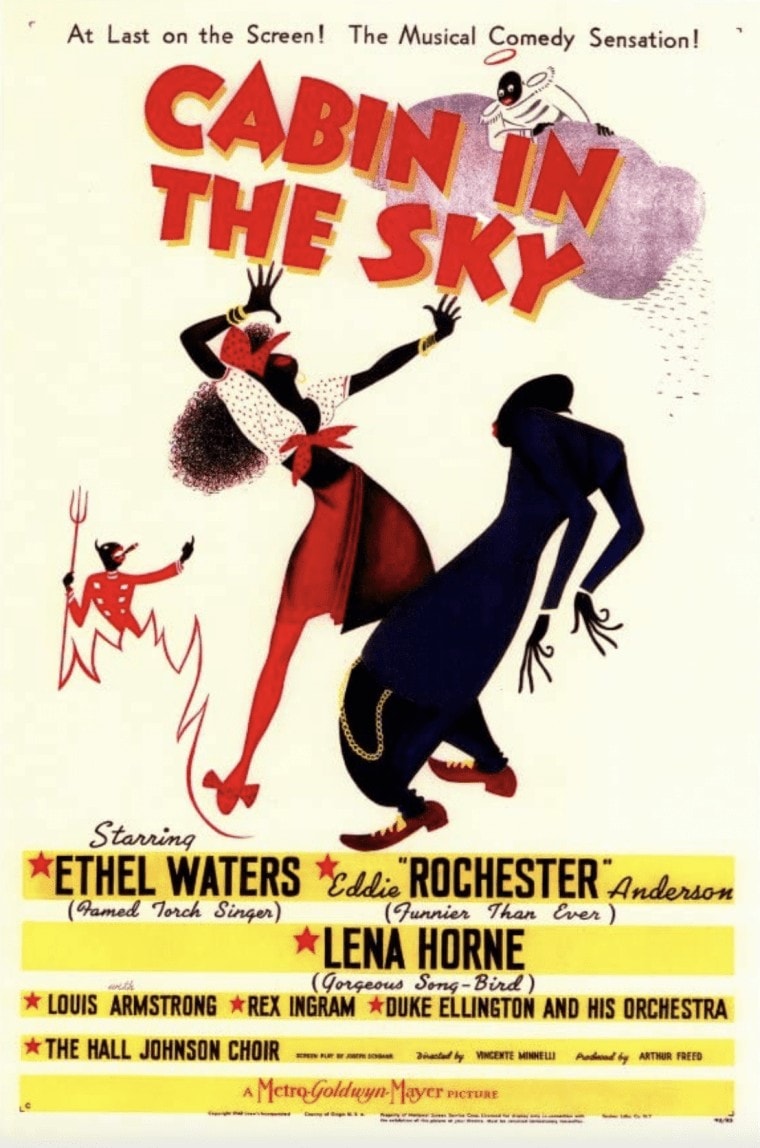
Courtesy of IMDB.com
Cabin in the Sky
An all-Black musical directed by Vincente Minnelli—directing his first feature—starring Ethel Waters and Lena Horne. A poor southern gambler is shot over a gambling debt. His wife prays for him, and God and the Devil hear her. They create their own game on whether the man will choose good or evil, given a second chance. Offbeat, funny, with some astonishing tap numbers. Co-stars Louis Armstrong and Rex Ingram. Great music and great dancing. The South of segregated towns, gambling joints, and good country people.
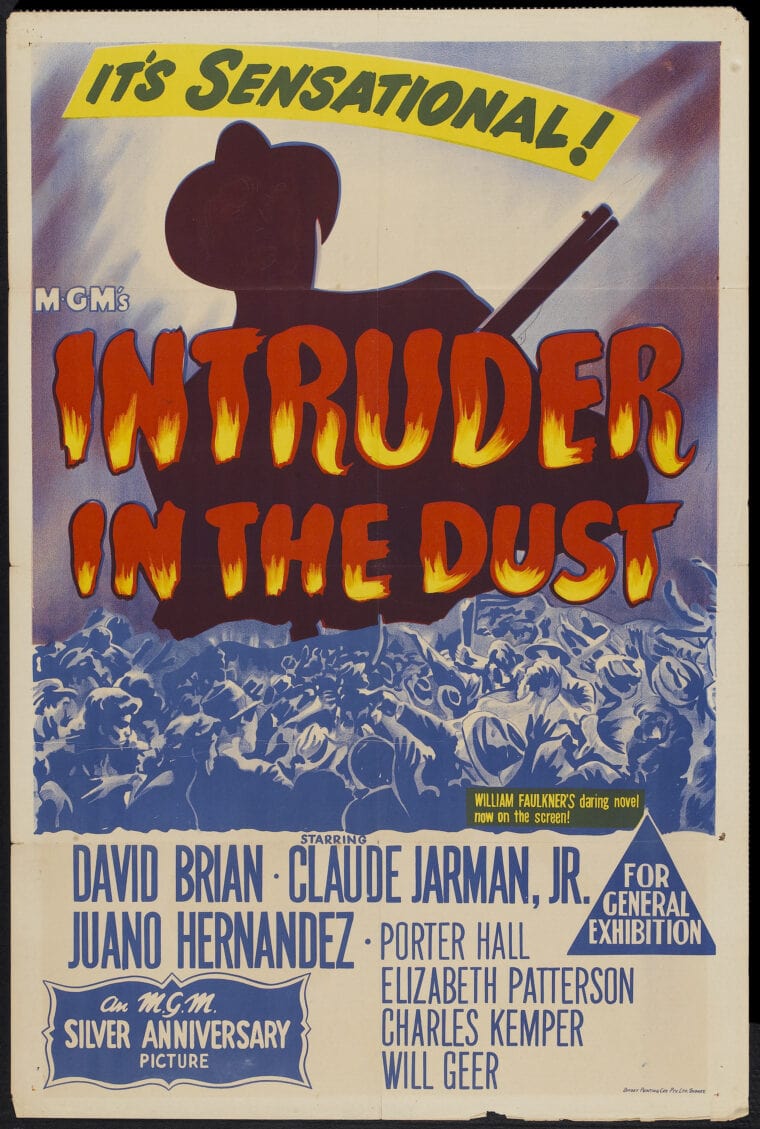
Courtesy of IMDB.com
Intruder in the Dust
One of the best movies about racism in the South—a thrilling, searing, scary, suspenseful, moving, and often funny Faulkner adaptation that has somehow gone missing in our collective cultural memory. A Black man is accused of murder, and the white townspeople plan to kill him. But a group of townspeople know he is innocent and work to clear his name. Unsung screenwriter Ben Maddow wrote the adaptation. The South of small towns, scalawags, racists, and terrifying anger.
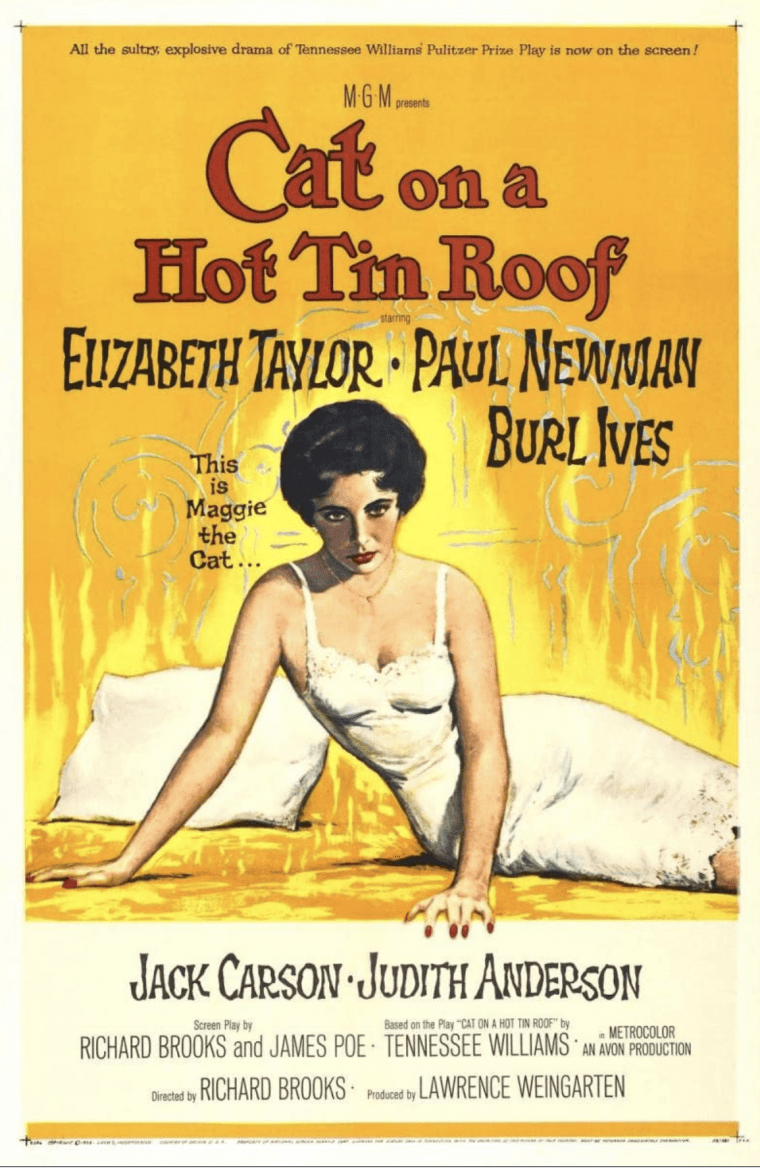
Courtesy of IMDB.com
Cat on a Hot Tin Roof
To me, this is the best of the Tennessee Williams’s adaptations––with Paul Newman and Elizabeth Taylor scorching the screen with longing, resentment, and unstated desire. A patriarch, Big Daddy, is unknowingly dying of cancer. His two sons are vying for control of the estate. Brick (Newman) is ruining his life with alcohol––over unfulfilled lust of his youth. A storm keeps them all inside on a long, desperately hot night. The South of yearning, booze, money, and scheming.
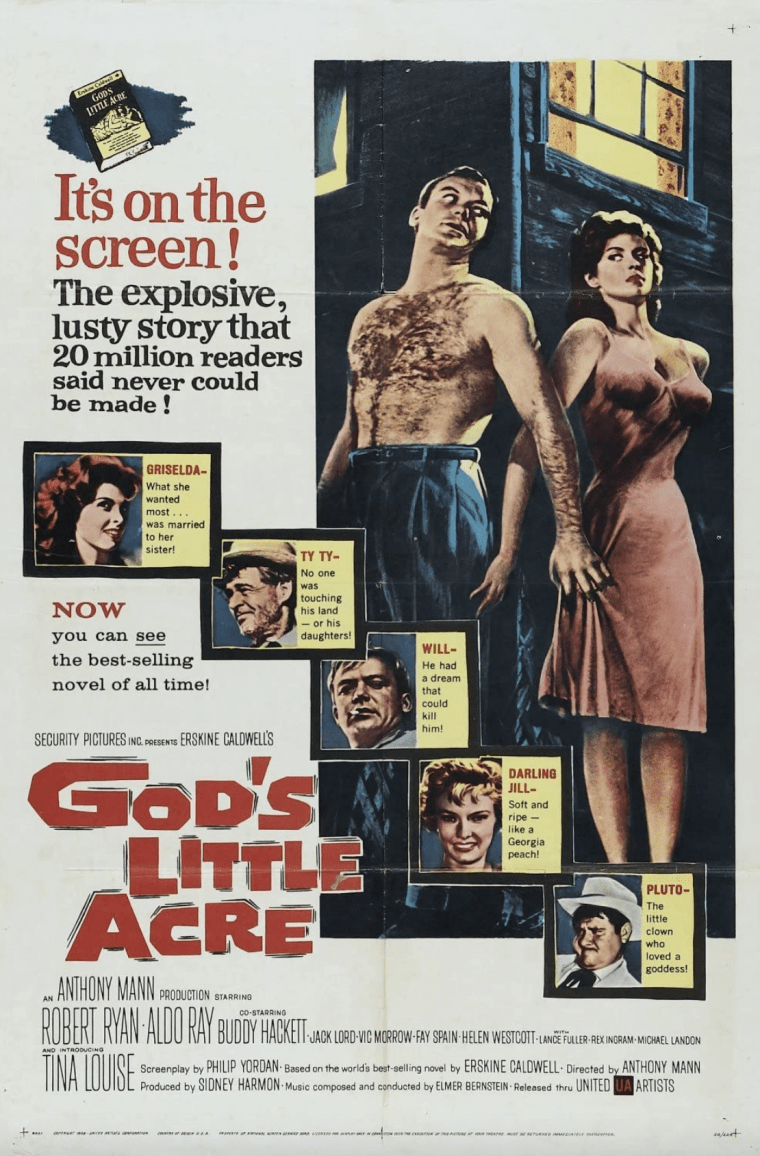
Courtesy of IMDB.com
God’s Little Acre
Bad books make good movies. Ty Ty Walden owns some of the richest land in the country but spends all his time systematically destroying it, looking for rumored gold. He suckers his sons into the same ridiculous dream, and in their obsession, they begin digging under the foundation of their house. Part-noir, part-western, very funny, and beautifully filmed by Anthony Mann. This wonderful movie gets at the Southern as fallen dreamer. An all-star cast: Robert Ryan, Tina Louise, Fay Spain, Rex Ingram, Jack Lord, Buddy Hackett, Aldo Ray, Michael Landon, and Vic Morrow. The South of unions, manufacturing, dreamers, and the damned.
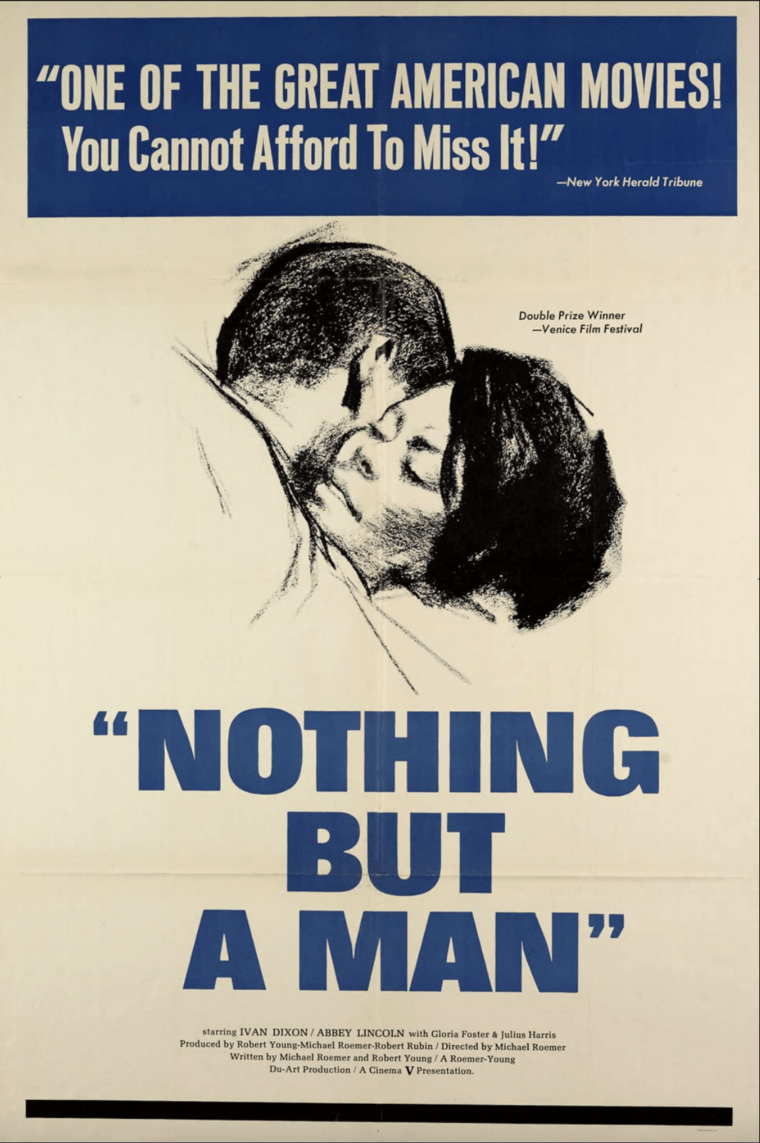
Courtesy of IMDB.com
Nothing but a Man
An independent feature filmed in and around Birmingham about Duff and Josie, two single Black citizens in the Deep South who are beginning to date, despite the appalling racism stewing all around them. Similar to The Exiles, this Alabama tale gives a view of the South that is critical but still loving. Duff struggles to maintain his temper and dignity through a series of tense scenes where he has little agency and even less power. He is a decent and kind man, yet the world keeps hammering him into something mean and cruel. You have never seen Birmingham like this; the backgrounds look more like post-war England. A wonderful, essential movie that no one seems to have heard of. The South of hard-luck Black citizens, an oppressive White power structure, and out-of-the-way places.
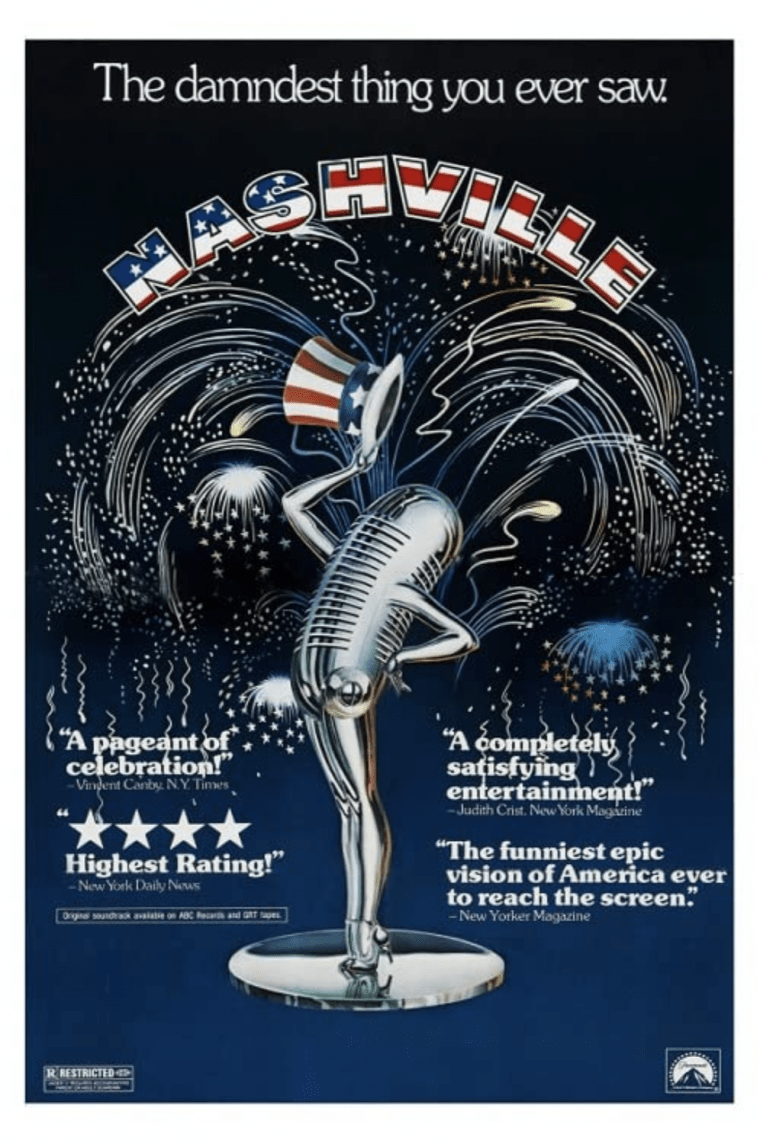
Courtesy of IMDB.com
Nashville
A film following twenty plus characters in and around the titular city for five days—Robert Altman’s finest hour. A musical, a comedy, a thriller, and a drama, with heartbreak and longing and paranoia galore. The plot? An advance man is in town to gather support for a third-party candidate, Hal Philip Walker, who is running on a populist platform that is as nebulous as it is scary. Altman’s loose, jangly style has never been more appealing, and the script by Joan Tewkesbury crackles with memorable scenes. The South of country music, gospel, and Tennessee cityscapes.
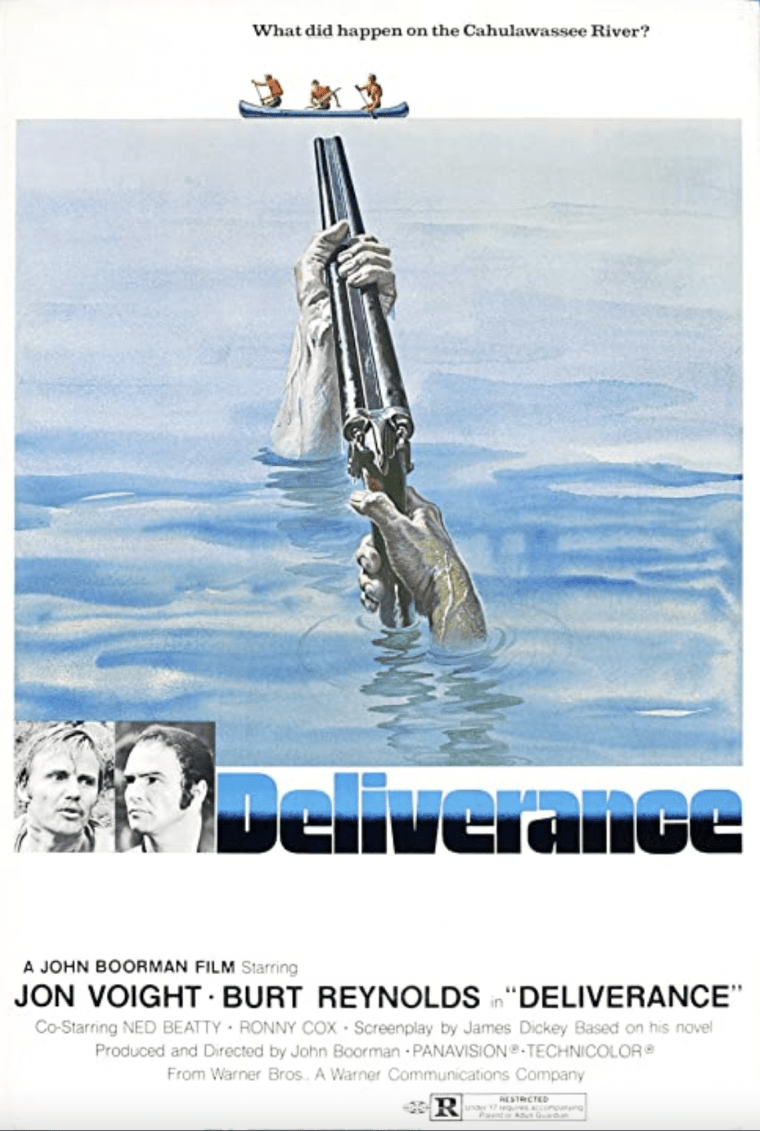
Courtesy of IMDB.com
Deliverance
Brilliant, troubling, unforgettable. Four men go a fishing trip and run into backwoods sex maniacs. It’s a horror movie setup, but in John Boorman’s hands, it’s a visceral, thought-provoking epic of men fighting themselves, and nature. There are dozens of these rural Morlock tales—2,000 maniacs being a notable, B-movie rendition—but Deliverance has top-tier acting and marvelous visuals. Yet it gives us a delirious and vicious lie of poor southerners as inbred rapists lurking at the edge of civilization. The South of banjos and rivers, shotguns and squealing pigs.
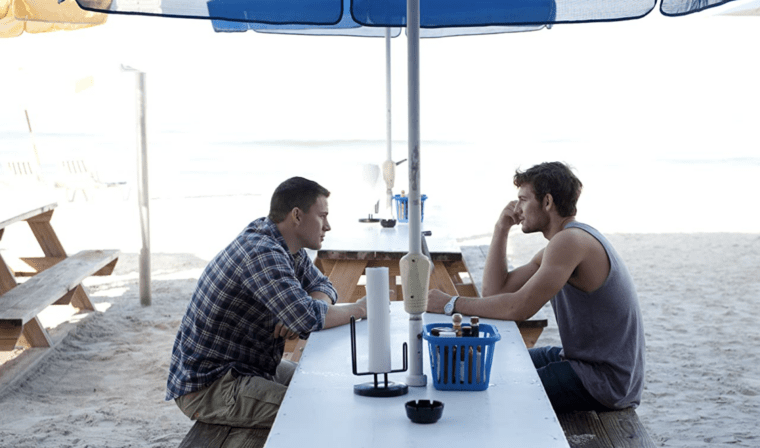
Photo by Claudette Barius – © 2012 Warner Bros. Entertainment Inc.
Magic Mike
Tampa provides the backdrop for this marvelous song and dance movie about the seedy backstage lives of male strippers. Loosely based on Channing Tatum’s own pre-Hollywood life, this is a great hangout movie, capturing the boozy, laid-back vibe of much of touristy Florida. Director Steven Soderbergh films the scenes with a loose, optimistic confidence. The centerpiece is Matthew McConaughey’s astonishing performance as the nightclub owner who charms his employees but hides a ruthless entrepreneur behind the happy-go-lucky facade. A marvel. (The sequel is terribly unwatchable.) The South of beaches, wannabe criminals, and suburban ennui.
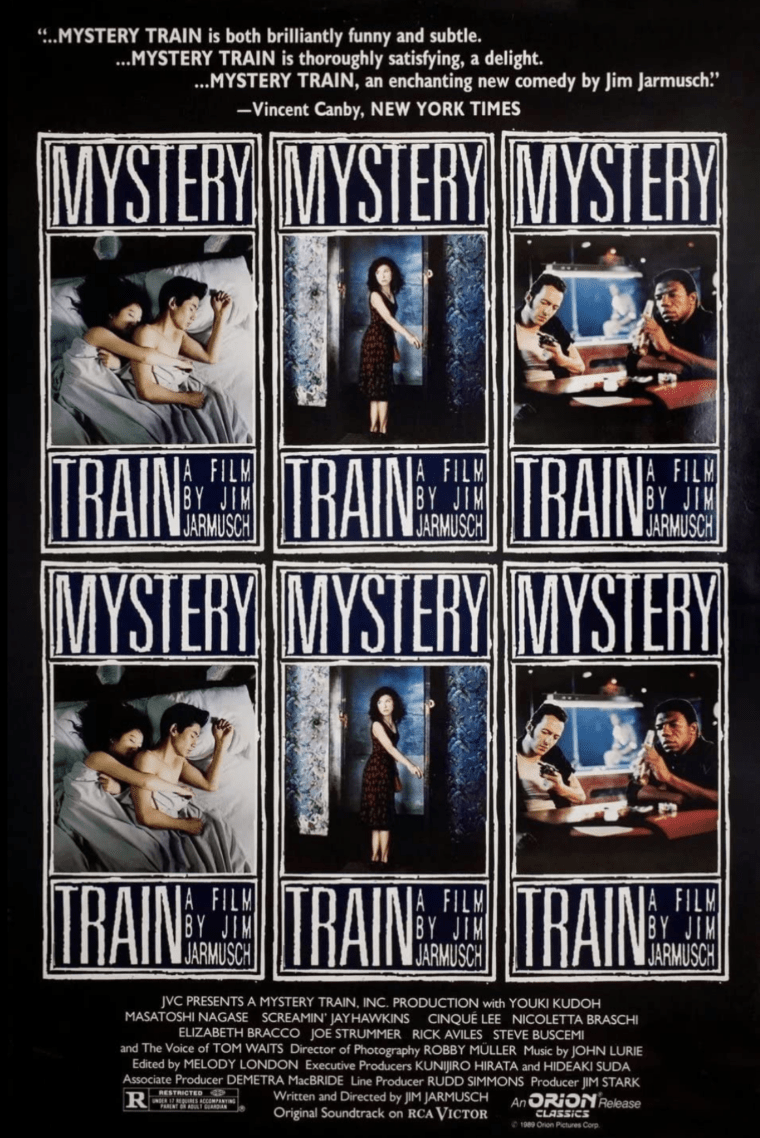
Mystery Train
Jim Jarmusch’s strange, lilting, twilight journey of 1980s Memphis. Elvis haunts the city and the movie like a ghost, while the old Stax Recording studio falls into disrepair. Three different stories unfold in the city, where Black and white people struggle to find meaning in Reagan’s America. Jarmusch is an acquired taste, off-kilter, wry, and an outsider. But if you like him, this is one of his best. The South as an urban landscape peopled with blues and soul legends.
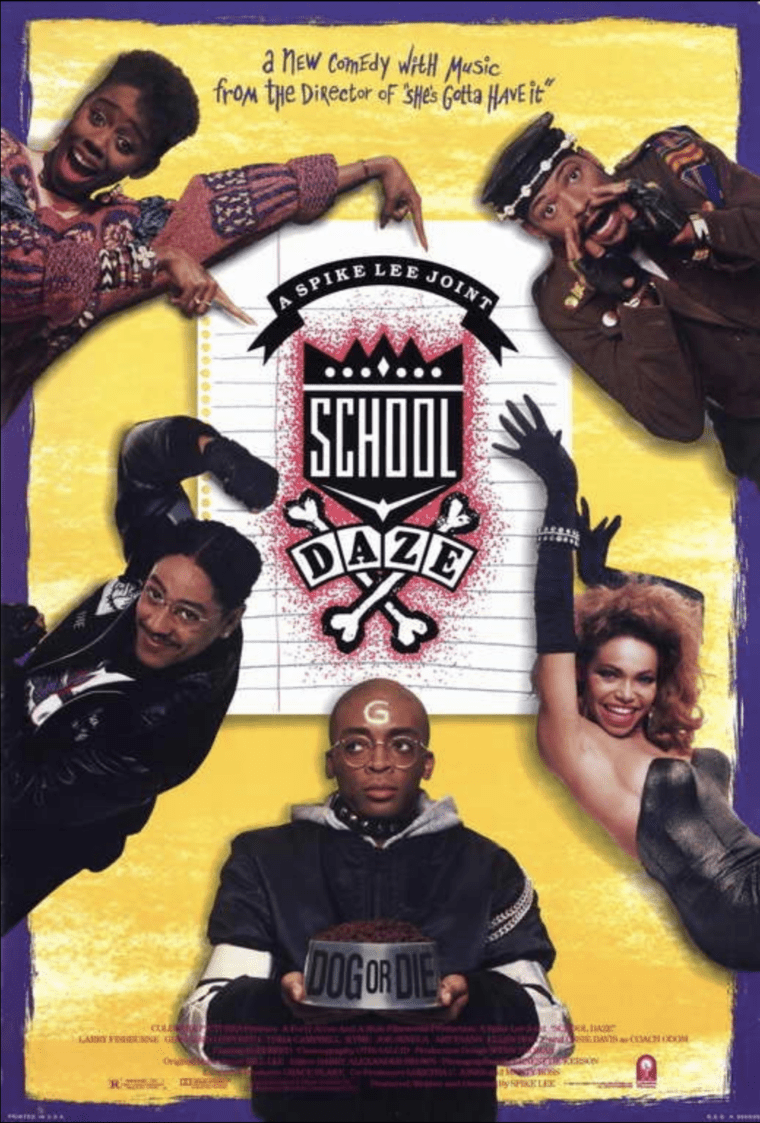
School Daze
Filmed in Georgia, this isSpike Lee’s take on the college movie and it’s a wonderful, heady mess. A pledge is torn between two mentors, the politically engaged Dap (Laurence Fishburne) and the manipulative fraternity leader, Julian (Giancarlo Esposito). Detailing the complexity of a historically Black college where skin color is a constant mark of both pride and shame, Lee manages to portray the intellectual challenges of being Black in the American higher education system that promotes partying and Greek mentality like it is the end of the world. It is also a musical—revisiting the vitality of Vincent Minnelli’s best work. Fun, combative, fascinating. A year later, Lee would unleash Do the Right Thing onto the world. The South as haven for Black writers, thinkers, dancers, singers, and activists.
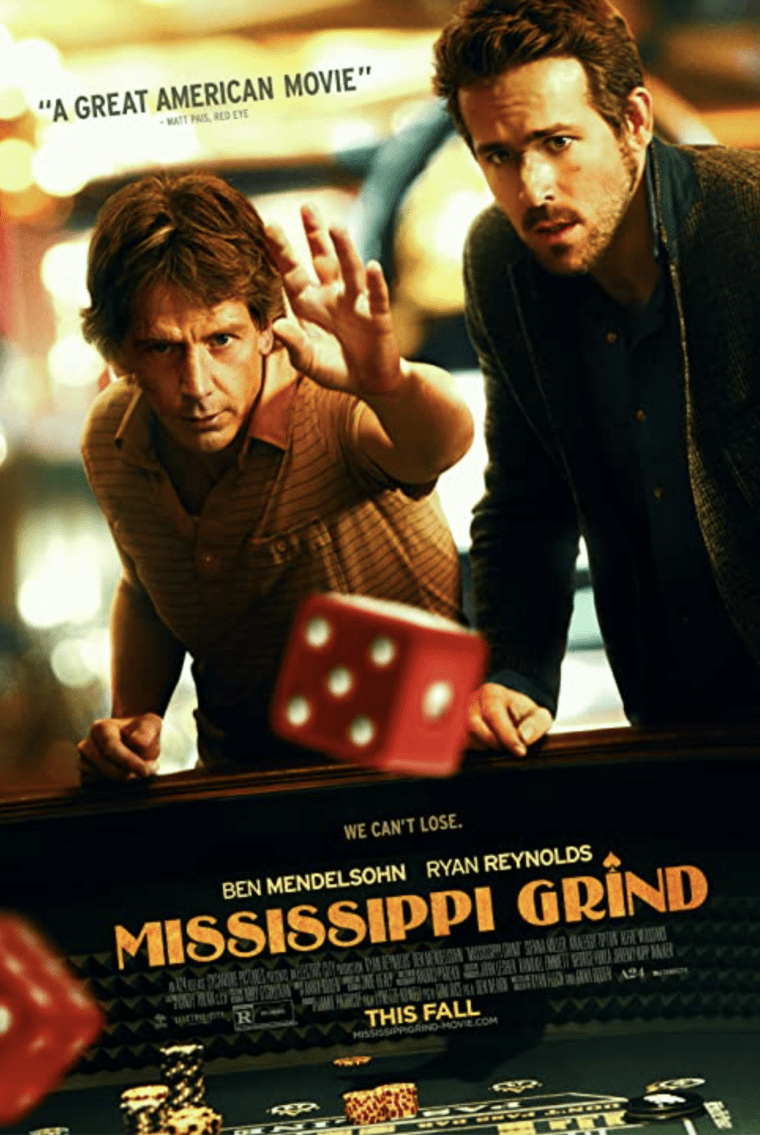
Mississippi Grind
A Deep South reworking of California Split, this marvelous little movie follows two gamblers—Gerry (Ben Mendelsohn) and Curtis (Ryan Reynolds), as they make their way through the South, stopping in at various casinos, riverboats, and gambling joints. Both a downbeat homage to the great films of the 1970s, and a hard-to-classify movie about luck, synchronicity, even magic, this little film with two dynamite performances takes you on a tour of the twilight South—where everyone is a hustler, and everything is for sale. Co-directed by the great team of Anna Boden and Ryan Fleck. The South of card sharps, croupiers, and cheats.
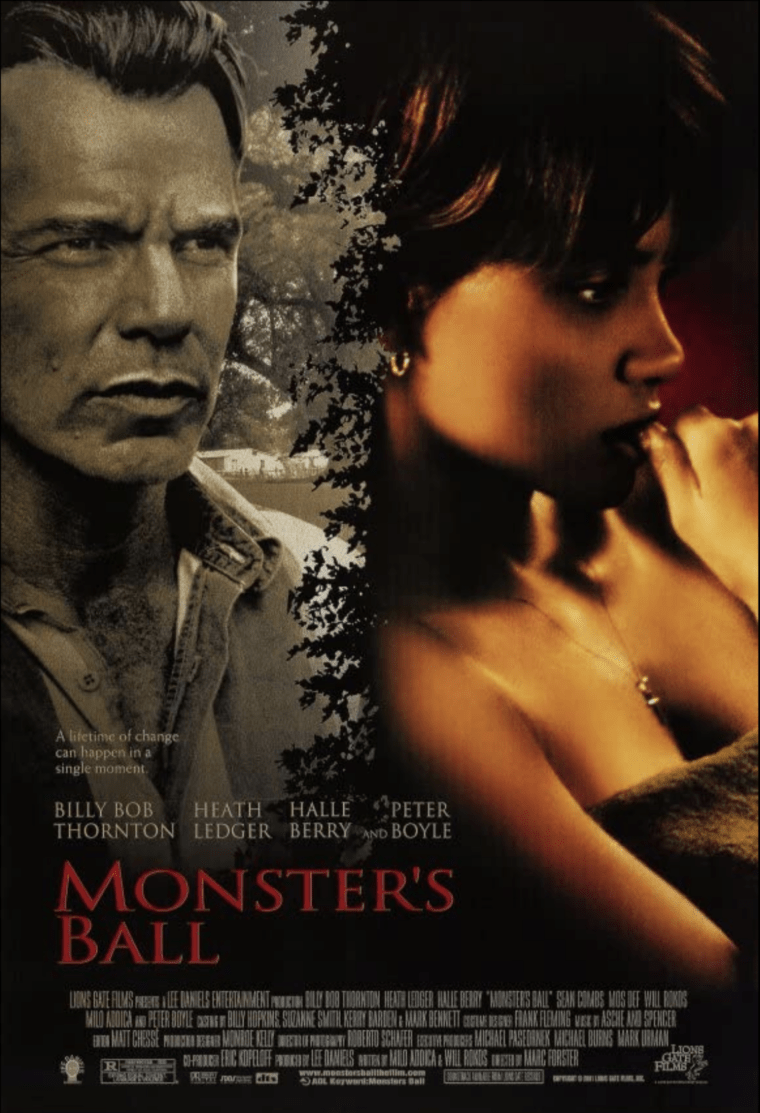
Monster’s Ball
One of the best movies about how racism works, how the strain of race madness transfers from one generation to the next, and the kind of desperate tragedy that might—maybe—dislodge the virus and deliver grace. Billy Bob Thornton plays a prison guard living with his hateful, aging father and disaffected son. He is not living—just existing—strangling in a miasma of self-loathing and despair. He meets Leticia, the black widow of an executed man, who is drowning in her own interlocking tragedies. The two begin a sexual relationship that blossoms into something deeper. A tough, unsentimental, and excellent movie about guilt, fear, and redemption. The South of prisons, backroads, and inter-generational hate.
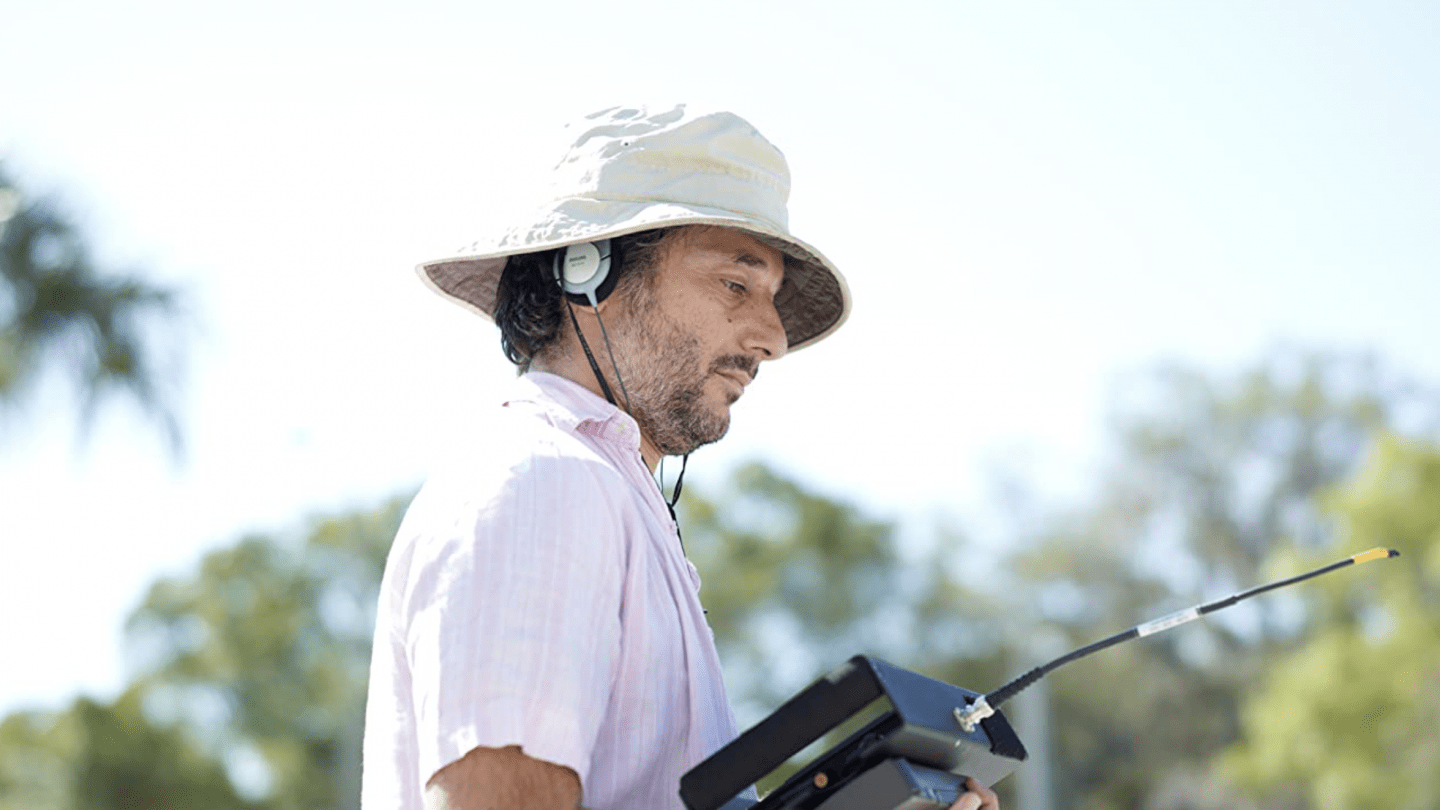
Photo by Michael Muller – © 2013 – A24
Spring Breakers
Bad boy of cinema Harmony Korine directs this remarkable indictment of hedonism, capitalism, and the dangerous innocence of youth. Equal parts essay and fantasia, the plot follows four college coeds robbing banks to fund their trip to Florida, where they fall in with a local hoodlum rapper (James Franco), and end up in a minor turf war between drug dealers. In Korine’s hands, this off-beat little satire feels timely and timeless—a scathing takedown of a culture intent on devouring its young. It is the images that stick with you. The South of cocaine and cocaine-white beaches, intoxicated undergrads and alcohol poisoning.
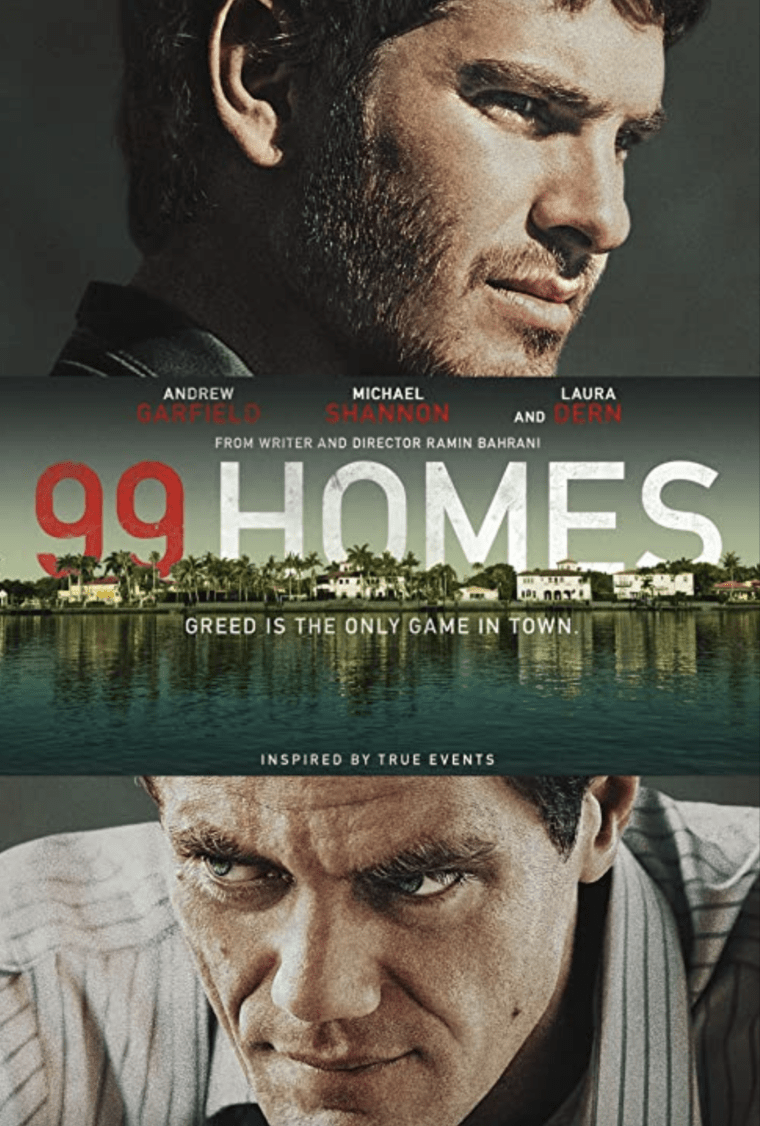
99 Homes
The great director of the dark side of America, Ramin Bahrani presents the fallout of the subprime mortgage crisis as it capsizes a working-class Florida family. Nash (Andrew Garfield) has lost his home to real estate broker Carver (Michael Shannon). Exiled to a motel with other victims of the crash, Nash soon finds work for the only employer who is hiring, Carver. A white-knuckle reworking of Wall Street, 99 Homes is a blistering account of history as we lived through it, with the demons and monsters of America running rampant over the Florida hinterlands. A great movie to pair with The Florida Project. The South as the end of the line.
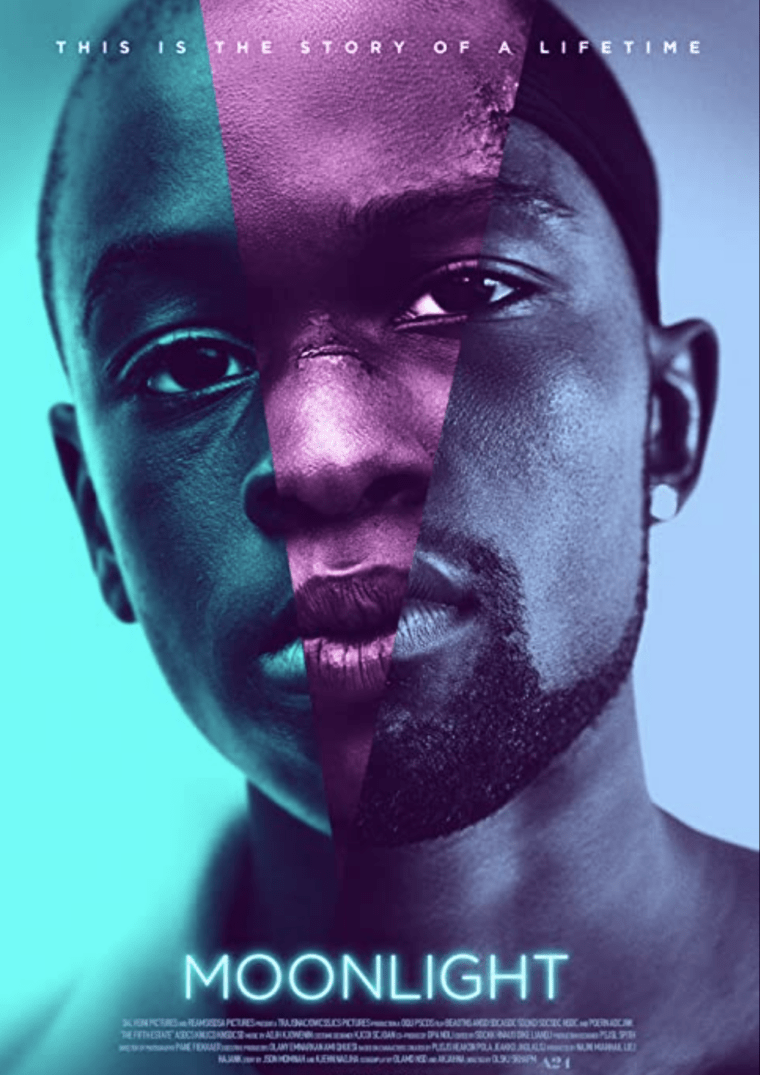
Moonlight
Barry Jenkins’s first film, and he delivers a masterpiece. Moonlight tells the story of a Black, gay, South Florida boy in three parts. First as a young boy, then as a high school kid, and finally as a hard-nosed and dangerous adult. Steeped in cinema and filmed with style, panache, and verve. Like Nashville, it is many things: a crime movie, a love story, a slice of life tale, and a damning portrait of a society that weaponizes young Black people, then imprisons them. Mahershala Ali got a lot of attention, but Trevante Rhodes, Ashton Sanders, Naomi Harris, and Alex Hibbert all deliver dynamite performances. The South as a broken, urban, disinvested wasteland.
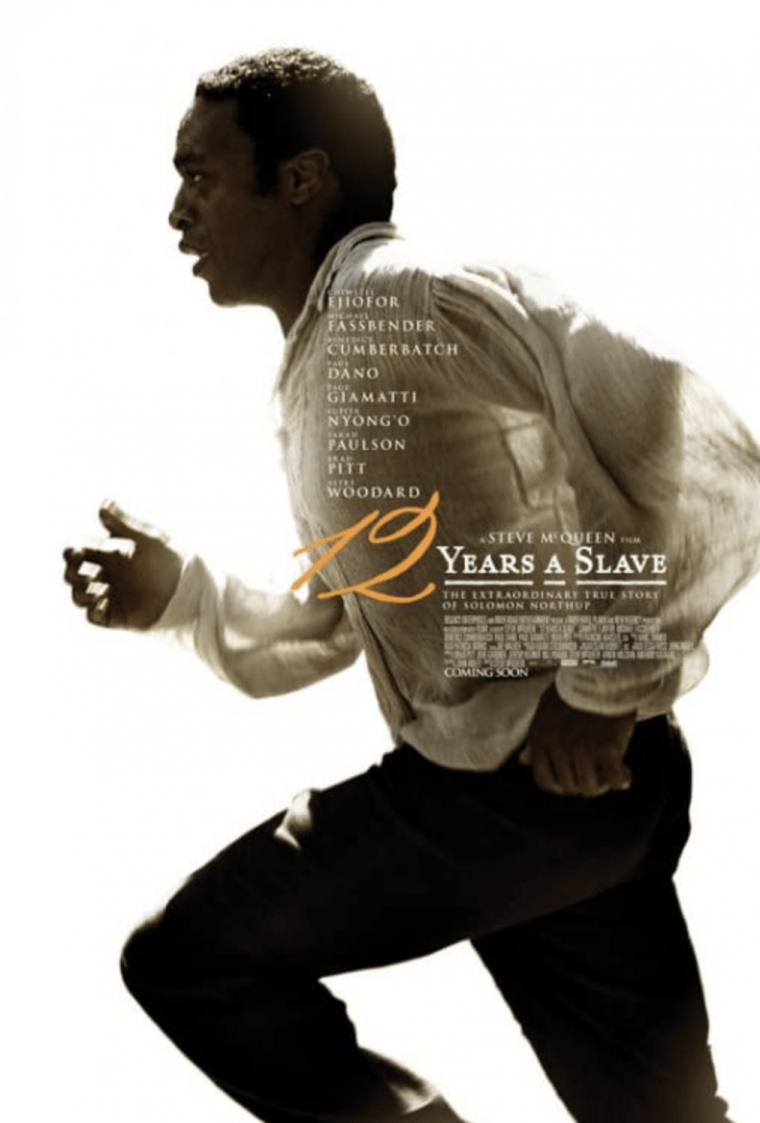
12 Years a Slave
British director Steve McQueen tells the true story of Solomon Northrup, a Black New Yorker kidnapped and sold into slavery. He is passed from owner to owner—a journey of terror, cruelty, and vicious slave-owners. McQueen manages to imbue the story with dignity and beauty, despite the horrors of slavery onscreen. I dreaded watching this, but Chiwetel Ejiofor, one of the best actors of our time, gives such a marvelous performance as Northrup. I couldn’t stop thinking about it after it was over. Pair with Django Unchained to see totally different approaches to the viciousness of the American past. The South as a chattel house, a place of dismemberment and murder.
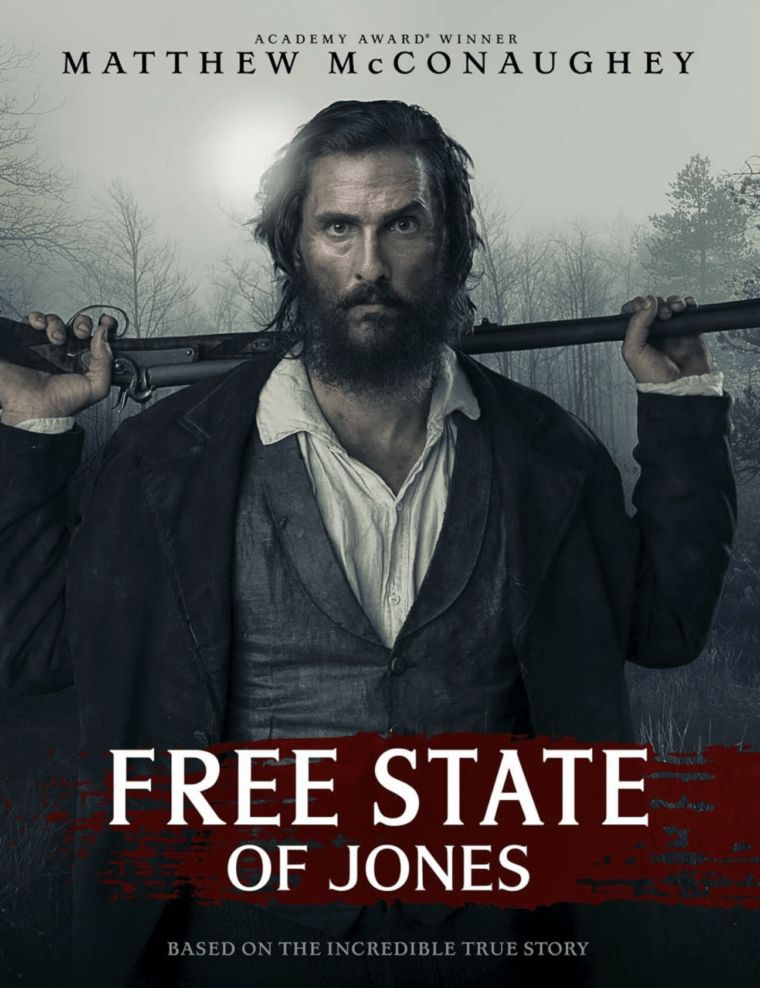
Free State of Jones
A rare film about the failures of Reconstruction and southern empire striking back. A Confederate deserter (McConaughey) joins up with Black and White farmers in Jones County, Mississippi; they create the free state of Jones—an independent, communistic enclave of equal men and women. They revolt. They survive the war. They build an egalitarian society during the Reconstruction Era. It all falls apart as the racist slave-owners and their political allies wrest political control, re-enslave the freed men and women, disenfranchise, imprison, and murder them. An antidote to the mythical view of the South as a prelapsarian Eden. The South as a cruel, terrifying place.
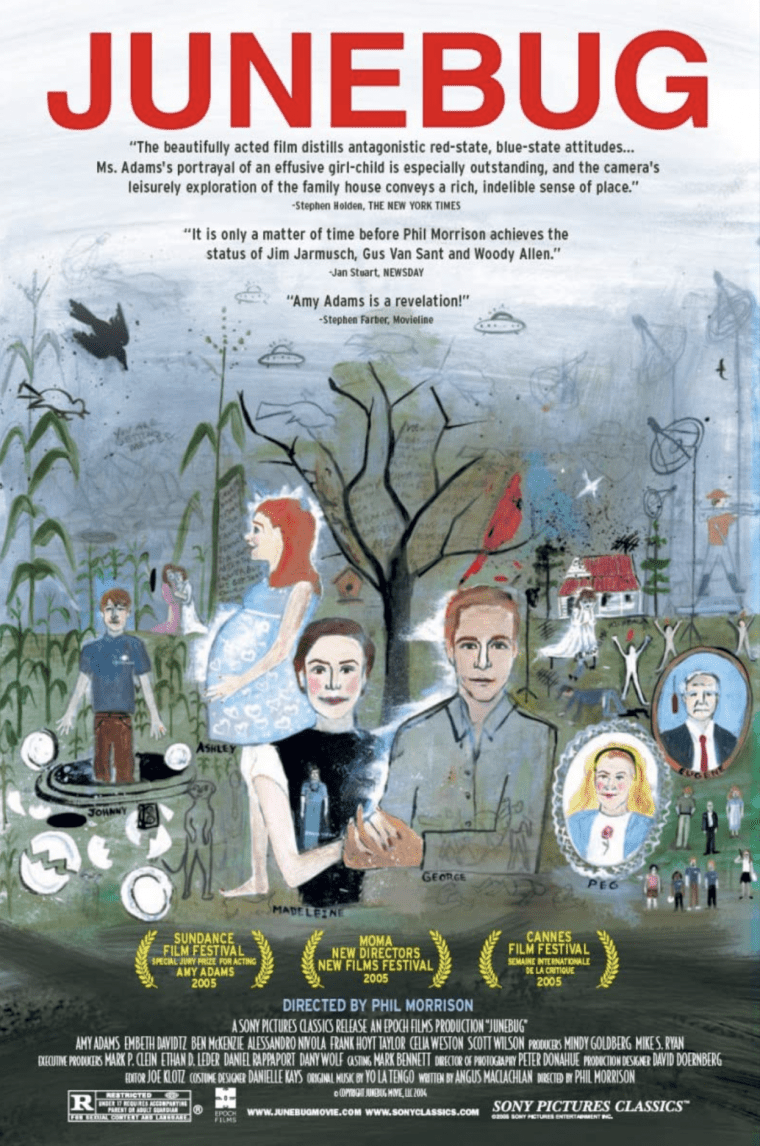
Junebug
A remarkable movie that attempts to present the ineffable qualities of religion. A British woman Madeleine (Embeth Davidtz) marries a North Carolina man, George (Alessandro Nivola), in Chicago only a short time after meeting him. Eyeing a folk artist in his hometown, Madeleine travels with George to meet his family—a middle-class Southern clan living unhappily in a state of tension. A series of misunderstandings, sometimes intentional, isolate Madeleine from her in-laws while she attempts to stage a show for the bizarre folk artist. The movie has a sharp script and a light touch, but immense power in its scenes. The South as a religious community.
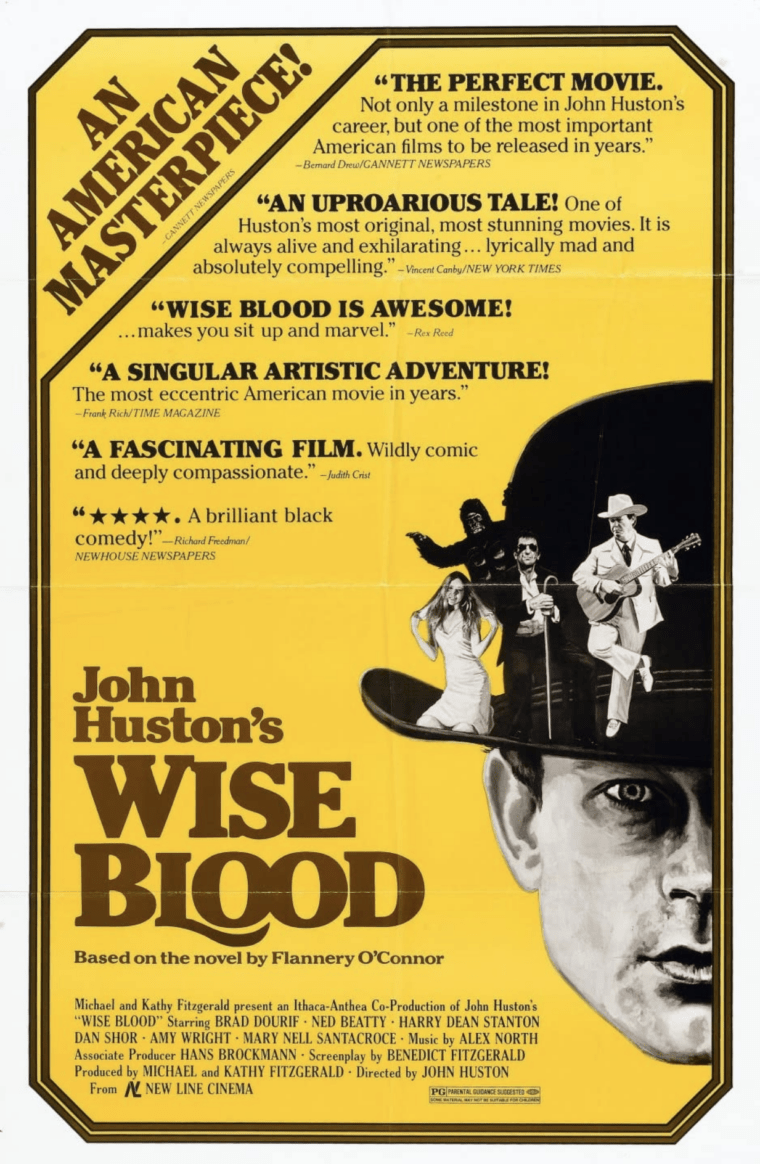
Wise Blood
The only Flannery O’Connor fiction to be adapted to film. John Huston directs this hybrid comedy-horror story of Hazel Motes (played by the magnificent Brad Dourif), a haunted man forming a Christian church without Christ or redemption. Filmed in Macon, it looks like outtakes from Taxi Driver with dueling street preachers and searing neon. That late-seventies film stock—seedy and chocolatey and saturated with lines and shadows—captures an urban, desperate South where even the men of God cannot be trusted. The South as a depository of liars, sinners, and saints.
Bonus Film Recommendations
Want to learn more? Check out our Author Talks featuring everything from memoir to historical fiction to Atlanta history.

